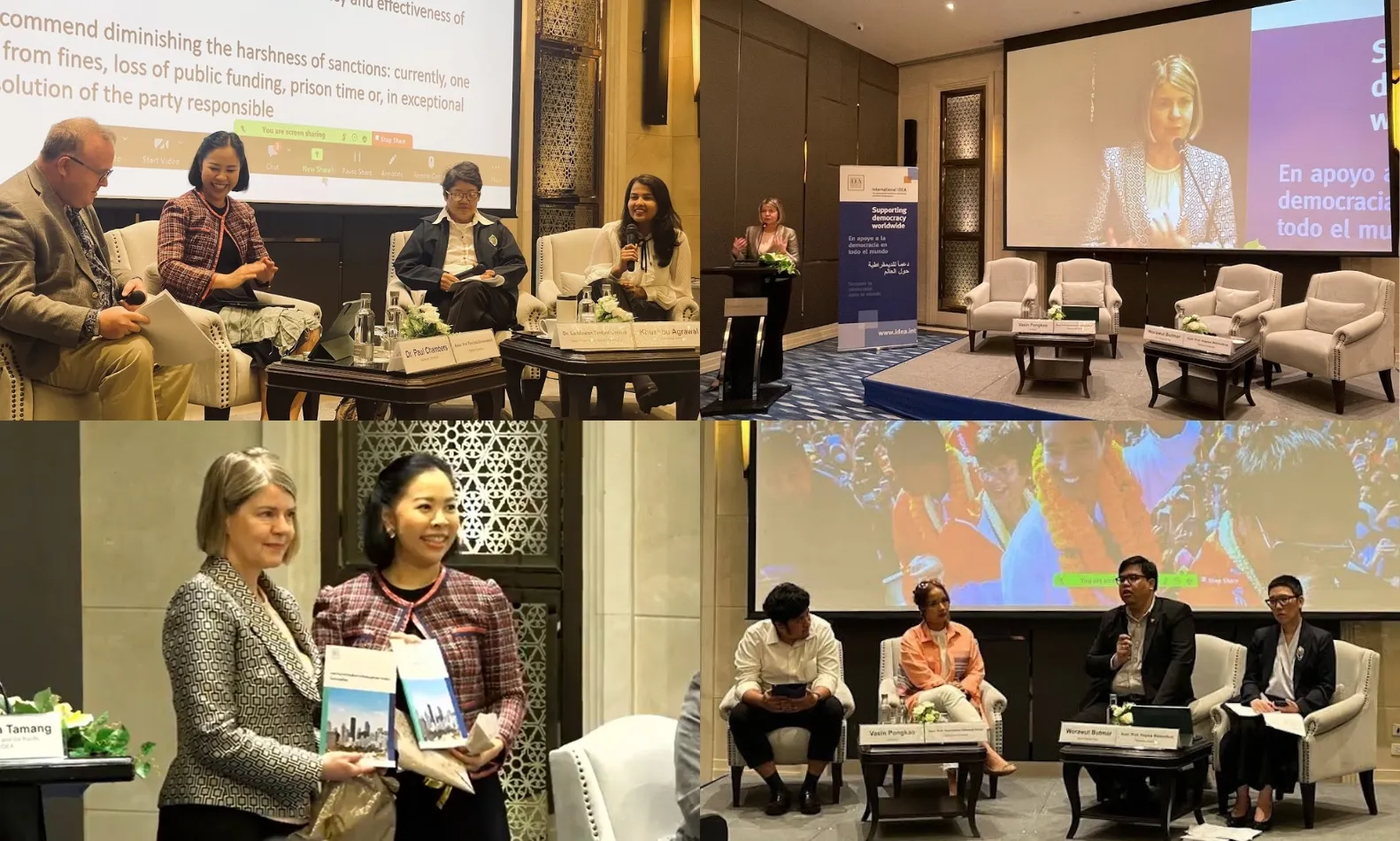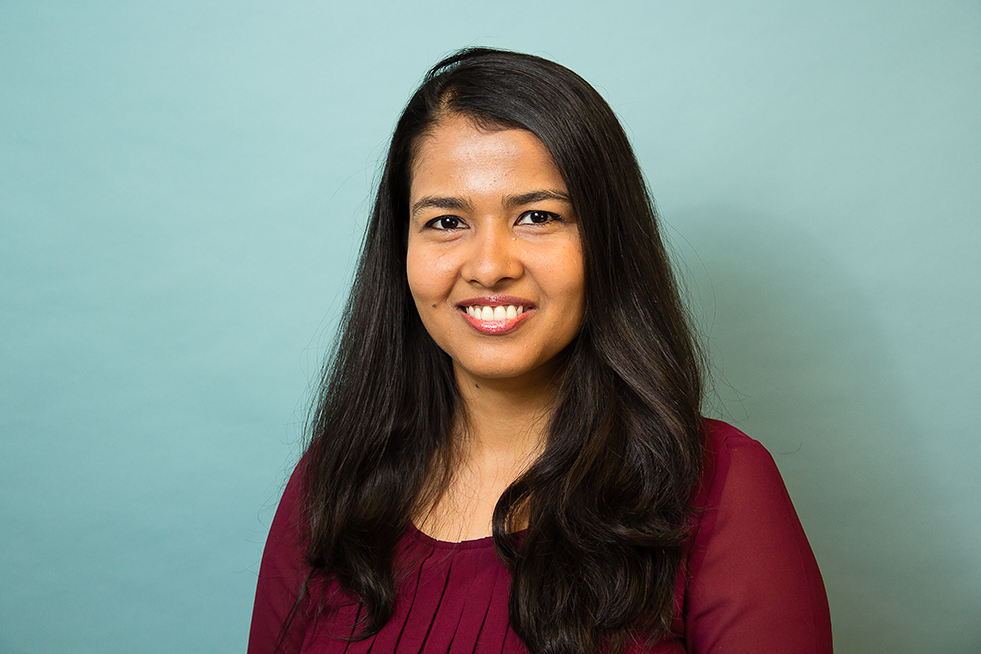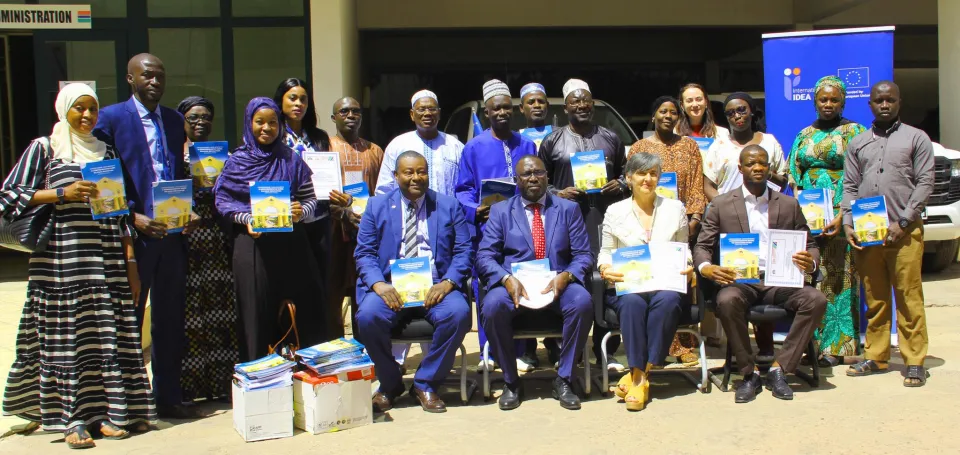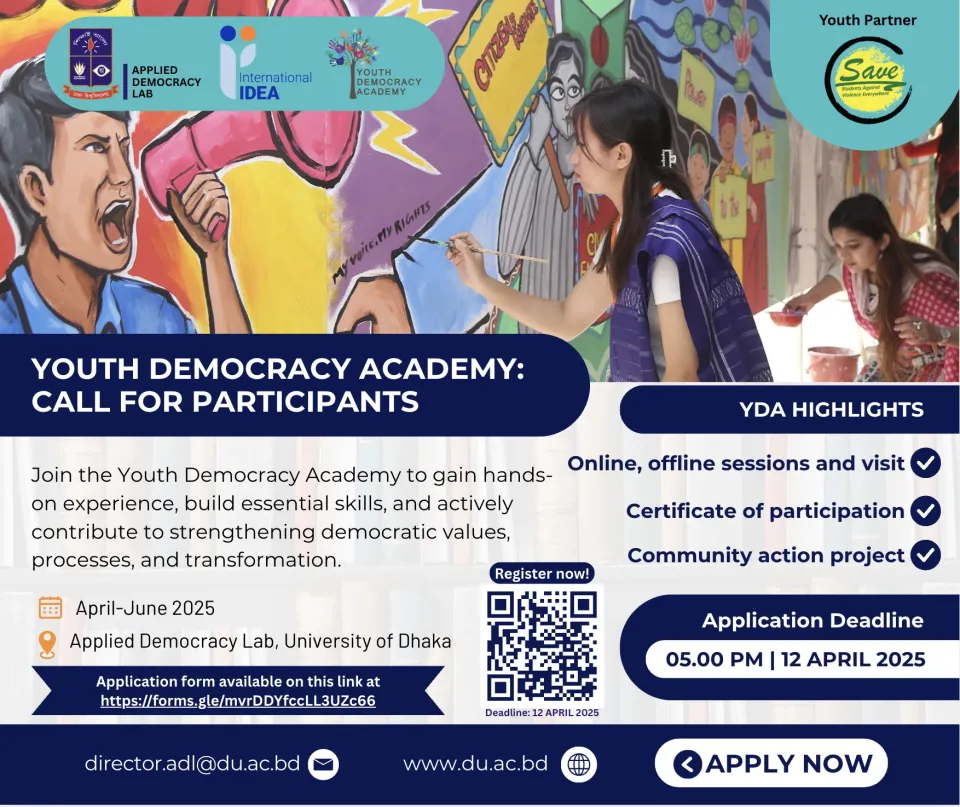Seminar sheds light on political finance in Thailand: Transparency and accountability in focus

In the last four decades, Thailand has made significant progress in economic and social development, including introducing reforms to its political system. And while regulations related to funding of political parties and election campaigns have evolved over the years, political finance in the country is marred by several challenges including systems of patronage and lack of transparency, giving rise to concerns over undue influence and corruption within the political sphere.
With potential policy shifts on the horizon and a heightened interest in uncovering the mechanisms of party and campaign finance in the country, International IDEA organized a seminar on the topic ´Political Finance in Thailand´ on 18th August 2023 in Bangkok. The seminar's objective was to bring together electoral stakeholders, policymakers, political parties, civil society actors, academia, and researchers to discuss and exchange knowledge, research, and expertise on different aspects of the issue in the country.
Political Finance Assessment of Thailand
During the first session, International IDEA´s report Political Finance Assessment of Thailand was launched by Leena Rikkila Tamang, Regional Director for Asia and the Pacific. In her opening remarks, she highlighted the relevance of the report, which undertakes a systematic analysis of the current political finance framework in Thailand, its strengths, weaknesses as well as challenges of implementation. Dr Punchada Sirivunnabood, lead national consultant for the assessment shared the main findings and recommendations provided in the report for consideration of policymakers, the Election Commission of Thailand (ECT), political parties, and civil society. Dr Paul Chambers from Naresuan University and Dr. Laddawan Tantivitayapitak from Open Forum for Democracy Foundation commented on and provided their reflections on the report.
While most recommendations were endorsed by the commentators and participants, one aspect that stood out was the strong call for the creation of an enabling environment for civil society organizations to be able to play an active role in accelerating political finance reforms, either through independent watchdog functions or through partnerships with the ECT.
This report is part of a larger International IDEA initiative to review political finance systems in selected countries to advance an evidence-based global policy debate on money in politics. Past assessments have been carried out in Mongolia and Fiji.
The Neglected Nexus: Connecting Digital Campaigns to Money
The second session of the seminar focused on the nexus between political finance and digitalization. International IDEA´s experts on the topic Peter Wolf and Khushbu Agrawal shared the main trends and identified solutions in addressing challenges brought about by digitalization based on practices and lessons learned globally and in the region. These lessons go beyond regulations and include soft laws and voluntary codes of conduct, platform transparency, and effective monitoring and oversight. The session was moderated by Adhy Aman, Senior Programme Manager for Asia and the Pacific.
The nexus was studied in depth by the International IDEA and the Electoral Regulation Research Network (Australia) in 2021-2022, which resulted in an analytical report containing case studies from five countries. Additionally, International IDEA has been implementing the project ‘Political Finance in the Digital Age’, which collects empirical information about the ways countries adapt to and cope with political finance challenges associated with digitalization. All our work in the area, including case studies, reports, and handbooks can be accessed here.
Digital Campaigning and Political Finance: The Thailand Story
The third session, moderated by Dr Napisa Waitoolkiat, Dean of the Faculty of Social Sciences at Naresuan University, focused on how online campaigns are taking place in Thailand, and their implications on political finance. The session brought together three panelists from diverse backgrounds: Worawut Butmar, Deputy Election Manager, of Move Forward Party, Dr Surachanee "Hammerli" Sriyai, Lecturer and Digital Governance Track Lead at Chiang Mai University and Vasin Pongkao, Manager of Social Media Monitoring at Project WeWatch. There was a broad agreement among the panelists that regulations in Thailand are not ´fit-for-purpose´ to account for current digital trends, and they explored possible steps that can be taken by stakeholders to ensure transparency and accountability in political and electoral processes. The issue of organic campaigning through volunteers and supporters was raised as one of the most contentious issues in the country, which requires attention and systematization.
The seminar concluded with a consensus on the need for immediate action to reform political finance practices. This will require a multi-pronged approach including legal reforms, inter-agency cooperation, investing in capacities of political parties as well as oversight agencies, and active civil society participation. The surge of young people’s interest in the 2023 General Elections enhances the need for political finance regulations to keep up with the growing practice of political campaigning in the digital environment. While the road to comprehensive reform may be fraught with obstacles, the growing demands for transparency and fairness suggest that change is inevitable.
The recording of all three sessions of the Seminar are available in English:
Session 1: Report Launch: Political Finance Assessment of Thailand
Session 2: The Neglected Nexus: Connecting Digital Campaigns to Money
Session 3: Digital Campaigning and Political Finance: The Thailand Story




